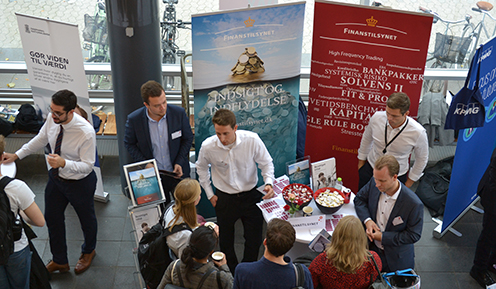Profile and Career
 The MSc in Economics is deeply theoretically founded. Studying for an MSc in Economics requires knowledge of mathematical theory and calculus, hard-core statistical devices such as SAS, and an intuitive feel of macroeconomics and microeconomics.
The MSc in Economics is deeply theoretically founded. Studying for an MSc in Economics requires knowledge of mathematical theory and calculus, hard-core statistical devices such as SAS, and an intuitive feel of macroeconomics and microeconomics.
Students have the option of choosing a general approach to Economics or a more specialised approach focusing on subjects like finance, development economics, public spending policy and much more. No matter what you chose as your focus, you will attain the title of MSc in Economics upon graduation.
The intention of this flexibility in course choice is to offer an MSc degree programme full of diversity, reflection and knowledge-sharing.
Career Opportunities
The recent economic crisis has increased the demand for skilled economists enormously. There are infinite career opportunities for an MSc in Economics, such as:
- Consultant - Work in a private company and find solutions to problems like: “Should we invest in public transport or in highways?” or “How do we get consumers to buy more iPhones?”
- Government Official - Work within a ministry and work with problems like: “How do we increase trade with China?” or “What can we do to increase the level of investment in green technology?”
- Politician - Many politicians are economists. The role of a politician is to decide which laws should be implemented to accommodate the proposals from government officials, the public or others.
- Financial sector - Work in insurance or banking with problems like: “Which asset should we invest in?” or “How do we measure the risk?”
- Teaching and research - Become a teacher and/or a researcher - teach young prospective economists and contribute to modern Economic Theory.
Competence Description
- You will be equipped with a strong foundation in Economics.
- You will be able to understand, describe and use economic theory on a high academic level.
- You will be able to make cost-benefit-analysis to aid decision-makers solve problems on both the microeconomic and macroeconomic level.
-
You will be able to use calculus and statistics to describe the society we live in and create models that can give a qualified estimate of what the future will hold.
Read about the programme structure.
